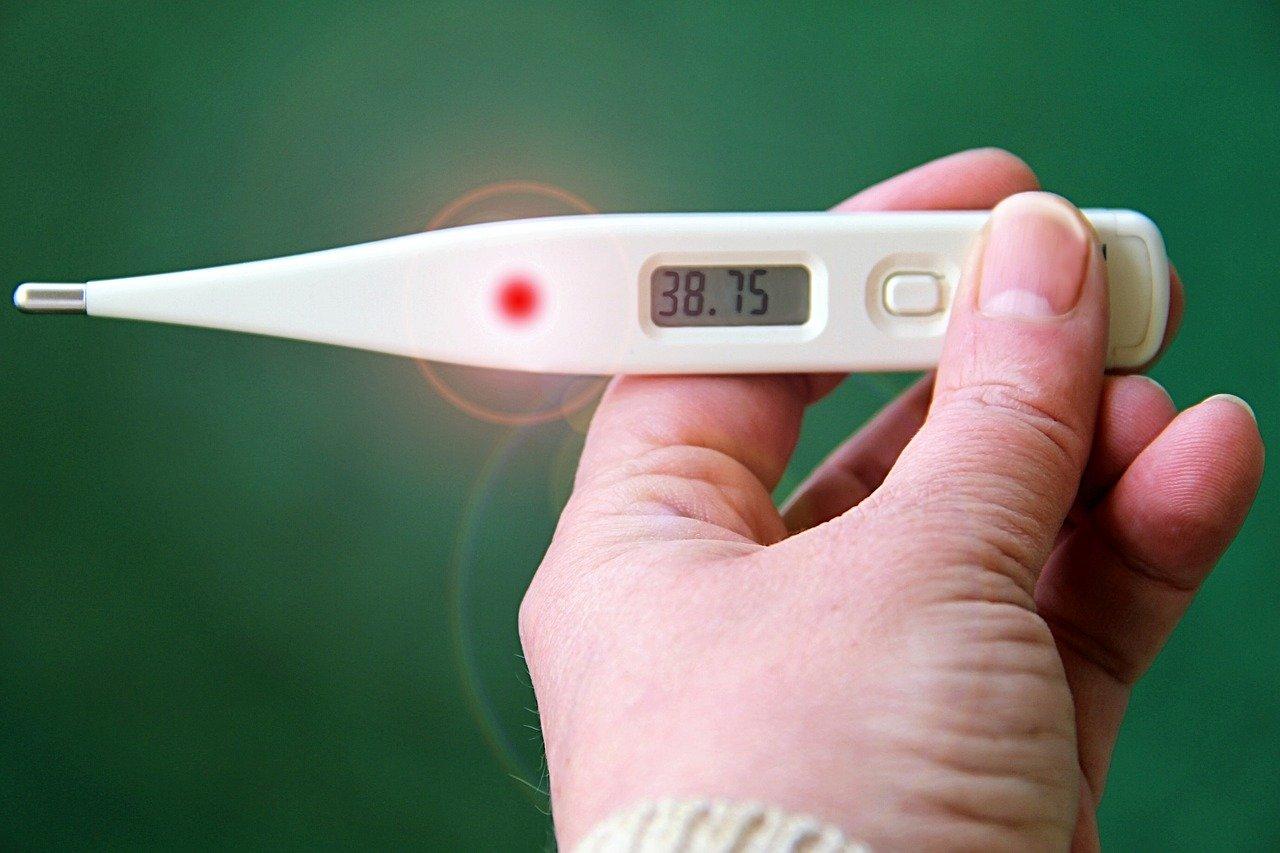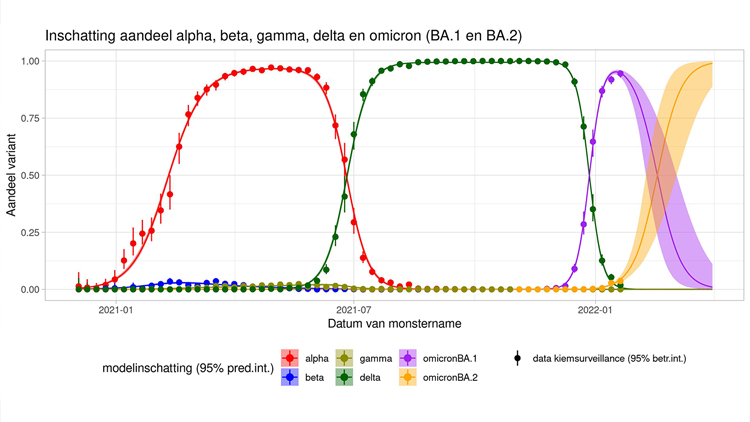More UU employees calling in sick, but classes go on

These past few months, the omicron variant has been spreading like wildfire in the Netherlands, leading to an increased absenteeism rate at Utrecht University. On average, 425 employees called in sick each day since November. That's a hundred more employees than in the same period in 2019 and 2020.
However, it is not clear whether Covid is the sole responsible for the increase, as employees are not obliged to disclose their reasons for calling in sick. But the rise is notable, to say the least.
Absenteeism rates
UU was seeing a slight decrease in its absenteeism numbers* since 2019 — 3.33 percent compared to 3.34 in 2018. In 2020, the total absenteeism rate was 3.21, which decreased even further to 2.98 percent in 2021.
Now there seems to be a trend reversal. The rates went up until February 7th of this year. The absenteeism rate of January 2022 was 3.8 percent. Human Resources director Aletta Huizenga stresses, however, that this percentage is not comparable to the total yearly numbers.
Apart from that, the support personnel has been calling in sick more often than the academic staff. That was the case in both 2020 and 2021. In 2021, four per cent of support personnel called in sick, as opposed to 2.13 per cent of the academic staff. Huizenga elucidates that this phenomenon can partly be explained by the fact that academic staff have more possibilities to reorganise their work from home, whereas support personnel are often required to work on location.
Though we cannot know for sure yet, the initial decrease and subsequent growth of the absenteeism rates may be associated with the different Covid-19 restrictions put in place by the Dutch government throughout the pandemic. In March 2020, when the pandemic first hit, UU's classes started to be offered online as much as possible. Last September, when the rules were relaxed for a while, some of the students were able to return to the campus and employees were allowed to work from the office for two days a week. Later, in December, the omicron variant was first identified in the Netherlands and quickly became the dominant one. Daily absenteeism rates have risen accordingly.
This article continues below the graph from the National Institute for Public Health and the Environment (RIVM in the Dutch acronym)

In UU’s Coronavirus update from January 2, the Executive Board noted that more and more employees were calling in sick, or had to be quarantined, which made it challenging to maintain the usual services. The following update, from February 16, had the following message from the board: "We are in a period with many infections and colleagues who are in quarantine. In addition, due to a shortage of personnel in the labour market, it may not be possible to provide the level of service you are used to at all locations".
Huizenga can't tell the number of quarantined employees at the moment, as the university has no such records, but quarantine has certainly led to difficult situations, like employees being unable to work full-time because they must stay home with their quarantined children. Moreover, students may have more online classes than anticipated or they may have to wait longer to see a study advisor.
Same situation everywhere
Other universities in the Netherlands are facing the exact same situation, reports the Higher Education News Agency (HOP in the Dutch acronym). But, regardless of illness and quarantine, classes and exams will go on as planned.
VU Amsterdam had anticipated the rising number of Covid infections, which is why they decided to keep its education online until February 4, with teachers being able to choose to give lessons on campus. According to the university's spokesperson, because of this decision, VU has “barely had any disruption due to quarantine-related absenteeism”. Exams there take place online or at a distance.
At Tilburg University, the non-academic personnel is working from home as much as possible, which means the quarantine rules did not make for a rise in absenteeism rates. “With regards to our teaching personnel, there have been no cancelled classes and no increase in the number of online classes”, informs a spokesperson.
During the exam period, TU Eindhoven was affected somewhat by the infections and quarantines, as many teachers and examination supervisors were absent. Even so, according to the university's spokesperson, exams could go ahead as planned thanks to replacement staff. In 2021, TU Eindhoven did not have higher absenteeism rates because of Covid, which the spokesperson attributes to the fact that most employees were working from home.
At Twente University, “a considerable amount of people”, which concerns both students and employees, were infected with Covid. However, their spokesperson says no "significant problems” have come out of that situation so far. as of now. But there is a chance certain classes will have to take place online in the next few weeks.
Wageningen University has seen a rise in infections among students, but not so much among employees. Although there has been a slight increase in the number of classes being offered online, there is no “dire need” for that, states the university.
*How the absenteeism rate is calculated
The absenteeism rates indicate what part of the working hours (the total number of calendar days all employees have available together) in a certain reporting period has been lost due to absenteeism.